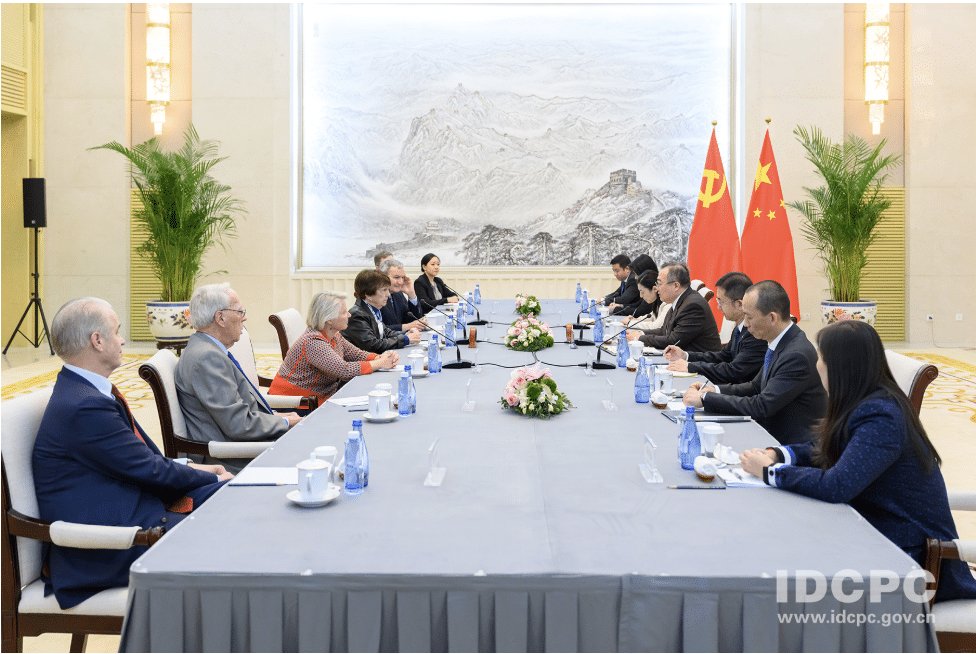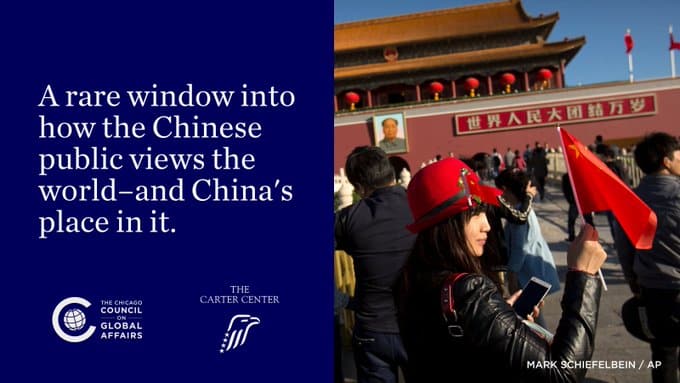‘The China-U.S. Relationship is Basically Good’
A few days ago, I was in Washington, D.C. for a conference. While there, I met some American friends. We had an interesting discussion about what seems to me to be a debate going on in the U.S. about China-U.S. relations: One side believes the China-U.S. relationship is going through a rocky patch and is at a “low point,” with many tough issues surfacing. The other side maintains that the overall China-U.S. relationship is good, notwithstanding the present difficulties. I share the second viewpoint for the following reasons:
First, the foundation of the China-U.S. relationship remains strong. Let me quote President Xi Jinping’s speech at the opening of the sixth round of the China-U.S. Strategic and Economic Dialogue on July 9:
In the past 35 years since the establishment of diplomatic ties, relations between China and the U.S. on the whole have moved forward and made historic progress although there have been ups and downs. There are now over 90 mechanisms for dialogue, and last year the bilateral trade volume exceeded $520 billion, bilateral investment accounted for over $100 billion. There are over 41 pairs of friendly provinces or states from both sides, and 202 sister cities. People-to-people exchanges exceeded 4 million every year. China-U.S. cooperation not only benefits our two peoples, but also promotes peace, stability, and prosperity in the Asia-Pacific region and the world as a whole.
In both China and the U.S. there are people complaining about the lack of strategic trust between the two countries. They mention quite a few facts to illustrate their worries. No one can deny these facts, but a coin has two sides. A comprehensive vision of the China-U.S. relationship is very much needed.
I went to the United States for the first time in 1971 to attend the United Nations General Assembly Session. At that time, trade between China and the U.S. was a mere 5 million U.S. dollars. Last year, it amounted to 520 billion U.S. dollars. In the 1970s, ’80s and even ’90s, such a rapid growth in bilateral trade was beyond anybody’s imagination. If there had been no mutual strategic trust, how could this growth have been achieved? It would simply have been inconceivable. I strongly believe that the mutual strategic trust can be achieved and strengthened through practical projects of cooperation. The two sides countries ought to make a greater effort to increase cooperation in all fields.
Second, President Xi Jinping and President Obama have reached an important consensus on the new model of major country relationship. The two leaders held an informal summit in Sunnylands, California, in June, 2013. They agreed to build a new model of major country relationship. They were determined not to let the bilateral relationship slip into a Thucydides’ trap. The summit had historic significance; never in history had an established power and a rising power made such an agreement. The two leaders meant what they said and chose to steer the China-U.S. relationship towards a new model of major country relationship, for the benefit of the two countries and the rest of the world.
Third, we have a series of mechanisms through which we can talk to each other and manage our differences. I don’t deny the existence of many problems in our bilateral relationship. But the China-U.S. relationship is one of the most important bilateral relationships in the world and no bilateral relationship is problem-free. There are problems when the relationship moves backward. There are problems when the relationship stands still. There are also problems when the relationship moves forward. I think that most problems appear along with advances in the China-U.S. relationship.
China and the United States are two quite different countries. We have different histories, traditions, and cultures. We have different political and social systems. It is quite natural that we may have problems. What matters is that we have a series of mechanisms to cope with those problems. President Xi Jinping and President Obama meet frequently. They call each other by telephone from time to time and they exchange letters. At the ministerial level, our two sides meet regularly. In addition to track I exchanges, our “Track II” interactions are active and dynamic on issues of mutual concern.
U.S. National Security Advisor Susan Rice came to China not long ago to prepare for the forthcoming visit of President Obama to China and his participation in the APEC Summit. She met President Xi Jinping, State Councilor Yang Jiechi and Foreign Minister Wang Yi. Her talks with Yang Jiechi lasted more than eight hours. Both sides are quite happy with that visit, because it has enabled the two sides to enhance mutual understanding, coordinate policies on global issues, and pave the way for the success of President Obama’s forthcoming visit to China.
A few weeks ago, I gave an interview to an Asahi Correspondent based in Beijing about the China-U.S. relationship. He focused on the problems. I said there was no denying that there were problems and even that one shouldn’t underestimate them. However, what determine the quality of a bilateral relationship are common interests. The common interests of China and the U.S. far outweigh the differences. In trying to manage our differences properly, through various mechanisms, summit meetings, strategic and economic dialogues, etc., the two sides are learning how best to deal with their differences, and consequently, our bilateral relationship is growing mature.
The U.S. is the only superpower in the world today. China is the largest developing country and the second-largest economy. A good, stable, and robust China-U.S. relationship is not only good news for the two countries, but also for the rest of the world.
By WU JIANMIN Sept. 26, 2014 on China File
Read more here








